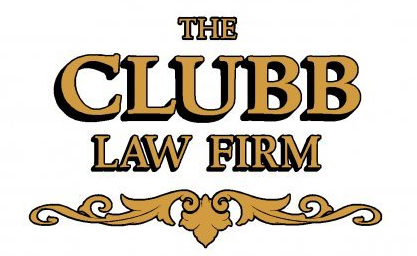Mediation in Missouri
Why Does Mediation Work?
Cost
Resolution
Future Business
Personal Satisfaction
Managing Risk
Confidentiality
Scheduling
Speed
BROWSE OUR WEBSITE
CONTACT INFORMATION
- Mon - Fri
- -
- Sat - Sun
- Closed
OUR LOCATION
CONTACT INFORMATION
- Mon - Fri
- -
- Sat - Sun
- Closed
OUR LOCATION
- Important Disclaimer Information About This Website
The Clubb Law Firm, LLC website is not intended to be advertising, but if considered to be advertising or similar communication in any jurisdiction, the following statement applies: The choice of a lawyer is an important decision and should not be based solely upon advertisements. The firm disclaims any desire to represent any prospective clients in states or other jurisdictions in which this website would be construed to constitute advertising or solicitation limited by law or rule in a manner inconsistent with its content.
The information and materials on this website are for informational purposes only. The transmission, display and provision of this information is not intended to be an offer of an attorney-client relationship with The Clubb Law Firm, LLC, or any of its attorneys, and is not legal advice. You should not act upon any information you receive from this website. Competent legal representation depends upon careful and specific attorney analysis of any legal problem, need or issue that you may have, which we only provide upon specific mutual engagement to act as your attorney.
The attorneys of The Clubb Law Firm, LLC are available to discuss the possibility of providing legal services to you. If you are interested and it is otherwise appropriate, we will gladly send you additional information about us, and if mutually agreeable, we will discuss with you our willingness to accept retention as your counsel.
In that event, we will provide you with a proposed engagement letter containing the terms and conditions upon which we may be willing to accept engagement as your counsel. Until such time as we have mutually agreed in writing that you have engaged us as your counsel, please do n not consider that you are in an attorney-client relationship with us or any of our attorneys. In addition, until and unless one of our partners has authorized you to do so, please do not send us any confidential information, because in the absence of an attorney-client relationship, it may not be adequately protected.
In the absence of our express agreement to act as your counsel, we do not accept any duty to you whatsoever (contractual or otherwise), including, but not limited to, any duty to respond to unsolicited communications, any duty to protect any information that you may send without our express authorization, and any duty to advise you of legal rights, duties, deadlines (such as statutes of limitations or other deadlines) or other actions or matters that may be important.
The materials and information on this website are updated from time to time, but are not guaranteed to be accurate, current or to reflect valid law or facts at the time you view or receive them. In addition The Clubb Law Firm, LLC undertakes no responsibility to verify or guarantee, and does not endorse, any materials or information of third parties that is accessible or linked to this website.
Similarly, unless otherwise specifically indicated as to any attorney, your ability to view or receive this information does not mean that: any attorney of The Clubb Law Firm, LLC is licensed and able to represent you in the state or other jurisdiction in which you reside or need legal counsel; or that any attorney of The Clubb Law Firm, LLC has any certification of specialty (if available) in the state or jurisdiction in which you reside or need legal counsel.
- Our Commitment to Privacy
Your privacy is important to The Clubb Law Firm, LLC. This Privacy Policy applies to the website and to all who visit the website.
The only personally-identifying information collected via this website is the information which the visitor knowingly provides either through an email message or the site's contact form. That information is used by The Clubb Law Firm, LLC only when the visitor asks for a response with specific information. Email messages and contact form messages to The Clubb Law Firm, LLC should not contain confidential or sensitive information as the website and its email are neither encrypted nor secure.
Neither visiting this website nor exchanging email with The Clubb Law Firm, LLC will create an attorney-client relationship and will not be covered by the rule of law that protects the confidentiality of communication between client and attorney.
The Clubb Law Firm, LLC does not share, rent, or sell information about its visitors, including email addresses, to third parties.
- Privacy Questions
If you have questions or concerns about this Privacy Policy or Disclaimer, please feel free to contact The Clubb Law Firm, LLC online or by telephone at 573-651-1900.

